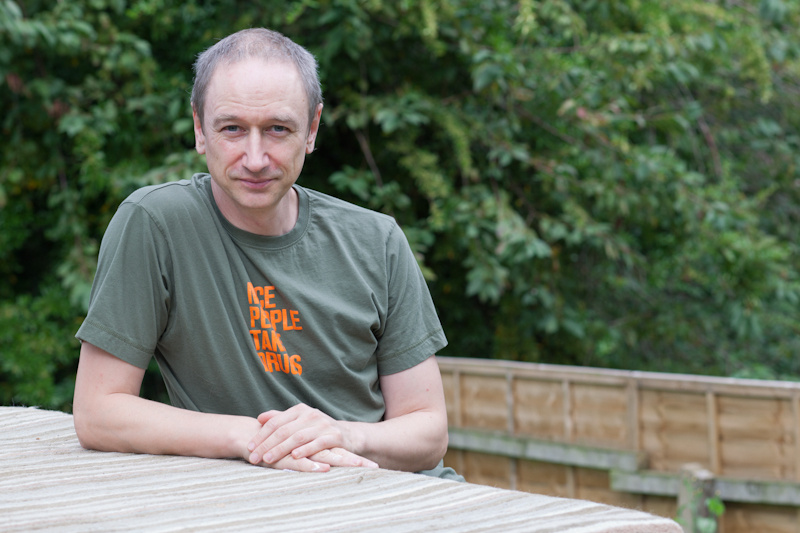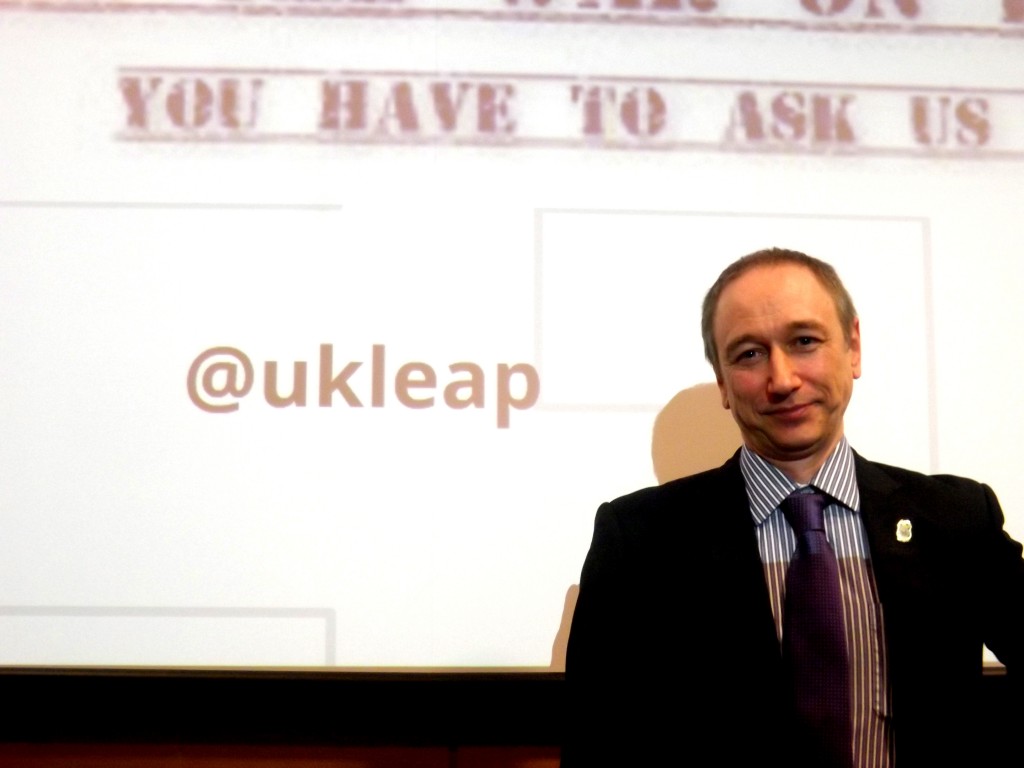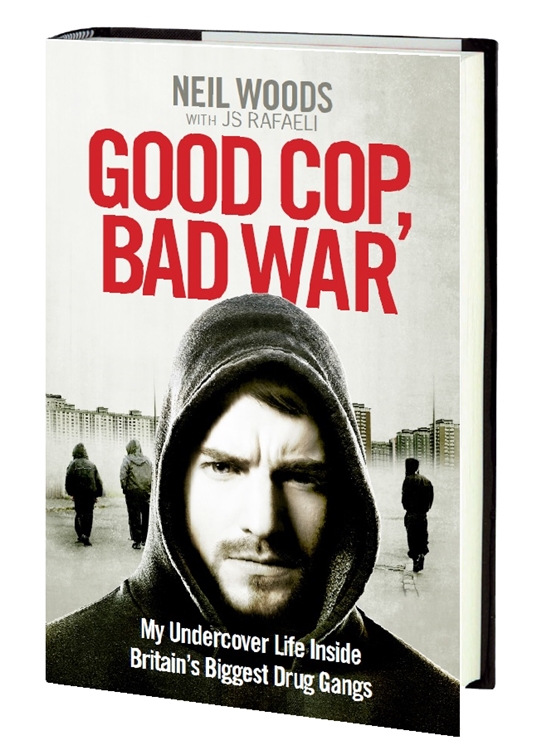VolteFace invited journalist and writer Alex Stewart, former Metropolitan police officer and presenter of BBC’s Thief Trackers, to review a new, eye-opening account of life as an undercover police officer amongst dangerous drug gangs.
We will be hosting the launch event for Good Cop, Bad War in the lovely confines of Library in central London on Thursday 13th October with Neil and JS Rafaeli. Register to attend the free event here.
Good Cop, Bad War – Neil Woods with JS Rafaeli (Ebury Press, 2016)
In Series One of David Simon and Ed Burns’ seminal television series The Wire, cops Kima, Carver, and Herc are sitting around, discussing how they fight the war on drugs on Baltimore’s streets. Kima shakes her head, resigned to her colleagues’ aggressive approach, when Carver comes out with one of his most perceptive observations.
Carver: “Girl, you can’t even call this shit a war.”
Herc: “Why not?”
Carver: “Wars end.”
The war on drugs isn’t going anywhere soon and, indeed, runs the prevalent argument, why should it? Drugs blight people’s lives, the acquisitive crime committed by addicts to support their habit affects the community as a whole, and drugs are imported and dealt by genuinely unpleasant individuals who use violence or threats of violence to control their criminal monopoly.
Neil Woods was on the frontline of that war for 14 years as an undercover police officer and his new book, Good Cop, Bad War details his efforts and his growing disenchantment with his ‘mission’. Woods took part in dangerous deployments to purchase drugs, helping to build intelligence and secure evidence that led to the conviction of many serious gangsters. His targets included Colin Gunn in Nottingham, the Birmingham-based gang the Burger Bar Boys, and a variety of lesser known but equally dangerous men and women across the country. And Woods is convinced that not only is the war on drugs un-winnable, but we should cease fighting altogether.
Good Cop, Bad War begins with his entry into the police, fired by a desire to protect society’s most vulnerable. The book proceeds, chapter by chapter, to detail his deployments across a range of cities, from Leicester and Northampton, to Nottingham and finally Brighton. The stories are gripping, full of detail, as you would expect from a man whose very safety, as well as the utility of his deployments, depended on remembering evidence; the prose zips along with real energy and avoids falling into a clichéd rehashing of former glories, showing instead a genuine sense of humour and a wry eye for an anecdote. And the chapters are peppered with characters, not just swaggering villains, but those caught up in the war on drugs as addicts, petty criminals, or young people sucked into a gang’s grasp.
It is among those people, the marginal and the damaged, where Woods’ perception of the war on drugs starts to change. He sees individuals whose lives have been shattered by fear, by violence, by a system that is focussed on punitive rather than remedial action. There is real pathos in Woods’ descriptions of these people and a desperation that the tactics he employed to get the job done often ended up exploiting and then further criminalising them:
It made no sense. I’d joined the police to protect the weak and vulnerable – and to fight against those who victimised them. Yet the most vulnerable people I had ever met were now being turned into criminals and sent to prison. If we were fighting a war, then these were the exact people we should be fighting to protect. And if we weren’t, then what were we fighting for at all?
Gradually, it dawns on Woods that an escalation in police activity and the deployment of increasing numbers of covert officers, officers whose training and methods he helped create, simply creates smarter, more ruthless criminals. He likens the situation to the Cold War arms race, protracted, dangerous, and ultimately un-winnable.
Woods calculates that for all the convictions his work achieved, around 1000 years of prison time, he only stopped the drugs trade for around 18 hours. And, more importantly, his work had merely entrenched the newer, smarter gangsters, while also alienating or endangering the vulnerable addicts he wanted to help. As he says,
So, while I may have put a few of the [Burger Bar Boys] away for a while, I had done absolutely nothing to address the situation that actually gave them their power. And along the way, I had made a lot of vulnerable lives even more vulnerable.
In series three of The Wire, Bunny Colvin, a major in the Western district of Baltimore’s police force effectively decriminalises drugs within a geographical area to allow the police to get on with what he feels is actual police work, serving and protecting a community by building trust and fostering relationships. He explains to Carver, by then a Sergeant, how the war on drugs has ruined policing:
This drug thing, this ain’t police work. No, it ain’t. I mean, I can send any fool with a badge and a gun up on them corners and jack a crew and grab bottles, but policing…I mean, you call something a war, and pretty soon everyone gonna be running around acting like warriors…Soon, the neighbourhood you’re supposed to be policing, that’s just occupied territory. Soldering and policing ain’t the same thing.
Colvin’s point is that the philosophy of protecting a population suffers when a war mentality sets in, when everyone involved is an enemy. Information dries up, support for policing wanes, and the basic premise of the job itself is ruined. Woods makes exactly the same point in his book and goes further: “The war on drugs corrupts everything it touches…most painful to me, it corrupts the police. You cant ask an army to fight a war it isn’t meant for and doesn’t really believe in, day after day, without moral rot setting in.” Woods is talking here not just of the corruption he encountered in Nottingham and in the Greater Manchester Police, but also of the moral rot that saw officers in Brighton laughing and joking about a rise in addicts dying of overdoses; gallows humour is one thing, and a crucial mechanism for coping with stress for many officers, but a dead human being is still a dead human being, not one enemy fewer to worry about.
As Robert Peel noted when he set out his famous principles for policing in 1829, the police must “maintain at all times a relationship with the public that gives reality to the historic tradition that the police are the public and that the public are the police”. Occupying armies have no place in proper policing and nor does the exploitation of vulnerable people, however valuable the evidence secured from them. Perhaps more importantly, Peel also stated, “the test of police efficiency is the absence of crime and disorder, and not the visible evidence of police action in dealing with them”. This is the failure of the war on drugs in a nutshell: a lot of action, most of it thoroughly well intentioned, with little to no effect and, in some instances, increased harm to members of the public. This is the disillusionment that Woods details, painstakingly and with total credibility.
Finally, in Brighton, Woods has an epiphany, caused in part by the deaths of addicts by ‘hot shot’ at the hands of dealers and general police inertia around investigating these murders, that he can no longer fight this war the way it is heading. Woods initially continues within the police, gaining credibility and expert witness status, before leaving and becoming the chairman of LEAP UK, a body of former law enforcement officers who advocate ending the war on drugs. Woods now argues for the legalisation and regulation of the drugs trade, taking £7 billion out of the hands of dealers and redirecting an estimated £7 billion that police worldwide spend waging the war on drugs to other, more effective measures, including treatment.
Each chapter of Good Cop, Bar War builds Woods’ credibility as an expert on fighting the war on drugs and so when he comes to this conclusion, it is both a surprise and also thoroughly plausible. Woods did his time in the trenches and his book details it brilliantly, but one feels that the chapters to come are the ones he is most looking forward to writing.
VolteFace will be hosting the launch event for Good Cop, Bad War in the lovely confines of Library in central London on Thursday 13th October with Neil and JS Rafaeli. Register to attend the free event here.
Alex Stewart is a former serving police officer with the Metropolitan Police Service with extensive experience of the war on drugs. He is now a journalist and television presenter.
You can purchase ‘Good Cop, Bad War’ by Neil Woods and JS Rafaeli here.



